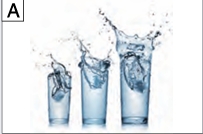排序
HSK 2 Unit 5 Take this one A
The e-book, including text, picture, audio and video explanation for HSK 2 Unit 5 Take this one A 就买这件吧
HSK 1 Unit 15 I came here by air B
The e-book, including text, picture, audio and video explanation for HSK 1 Unit 15 I came here by air A 我是做飞机来的
HSK 1 Unit 15 I came here by air A
The e-book, including text, picture, audio and video explanation for HSK 1 Unit 15 I came here by air A 我是做飞机来的
HSK 1 Unit 14 She has bought quite a few clothes B
The e-book, including text, picture, audio and video explanation for HSK 1 Unit 14 She has bought quite a few clothes B 她买了不少衣服
HSK 1 Unit 14 She has bought quite a few clothes A
The e-book, including text, picture, audio and video explanation for HSK 1 Unit 14 She has bought quite a few clothes A 她买了不少衣服
HSK 1 Unit 13 He is learning to cook Chinese food B
The e-book, including text, picture, audio and video explanation for HSK 1 Unit 13 He is learning to cook Chinese food A 他在学做中国菜
HSK 1 Unit 13 He is learning to cook Chinese food A
The e-book, including text, picture, audio and video explanation for HSK 1 Unit 13 He is learning to cook Chinese food A 他在学做中国菜
HSK 1 Unit 12 What will the weather be like tomorrow? B
The e-book, including text, picture, audio and video explanation for HSK 1 Unit 12 What will the weather be like tomorrow? A 明天天气怎么样?
HSK 1 Unit 12 What will the weather be like tomorrow? A
The e-book, including text, picture, audio and video explanation for HSK 1 Unit 12 What will the weather be like tomorrow? A 明天天气怎么样?














